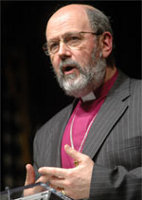I backed out of writing this series about those biblical passages about women in ministry not too long ago. It wasn’t because the evidence is hard to find or interpret, but it was partly because I had so little hope of anybody listening. They’d agree, I assumed, if they already held an opinion that they saw me affirming, and they’d disagree if they saw me affirming a view they didn’t already hold. The evidence rarely seems to really matter on this issue. People will find a way – any way – to make it fit an ideology. What would be the point of writing about this? But here I am, venturing into that series.
After a cautionary introduction post on what I am about to do (which I insist you read before you read this blog post), this is the first of my blog explorations of the contentious biblical passages about men and women in the church. Any comments you make on this post or any posts in this series must conform to the guidelines I gave in that cautionary post. Talk about the evidence and the issue strictly defined by the blog post. That’s all I’m prepared to allow. Behave or I’ll kick you out. I’m deliberately being boring so as to discourage the elements that make this issue frustrating.
Why would I want to be boring? Here is why: You will probably have seen people who get caught up sharing exciting links on social media about scientific issues. Vaccines cause autism! The earth is flat! Homeopathy cures cancer! Climate change isn’t happening! Quoting what people have said, citing anecdotes, attributing evil motives, citing cultural or traditional pressure, complaining about vested interest – these are all the sorts of things that fly thick and fast in discussions about theories like these. What is less common is the boring approach of slowly, slowly, slowly checking every relevant piece of data. It is not sexy. It does not make for good Buzzfeed articles. But if you want to know what is true and what is false when it comes to the theories that should only be formed after the ponderous work has been done, this is how you do it. The boring way. I am going to write several blog posts about the meaning of one Greek word, kephalē. Fun times.
Alright. Here we go.





 Back on the 9th of February 2013, Tom Wright and James White discussed / debated the issue of justification in the writings of St Paul on the Unbelievable? Radio show, hosted by Justin Brierley. The discussion was titled What did St Paul Really Say? Thanks to the efforts of my friend Roy Soliman who transcribed this, the transcript of that discussion is now available here at Right Reason.
Back on the 9th of February 2013, Tom Wright and James White discussed / debated the issue of justification in the writings of St Paul on the Unbelievable? Radio show, hosted by Justin Brierley. The discussion was titled What did St Paul Really Say? Thanks to the efforts of my friend Roy Soliman who transcribed this, the transcript of that discussion is now available here at Right Reason. How did St Paul read the creation story?
How did St Paul read the creation story?
